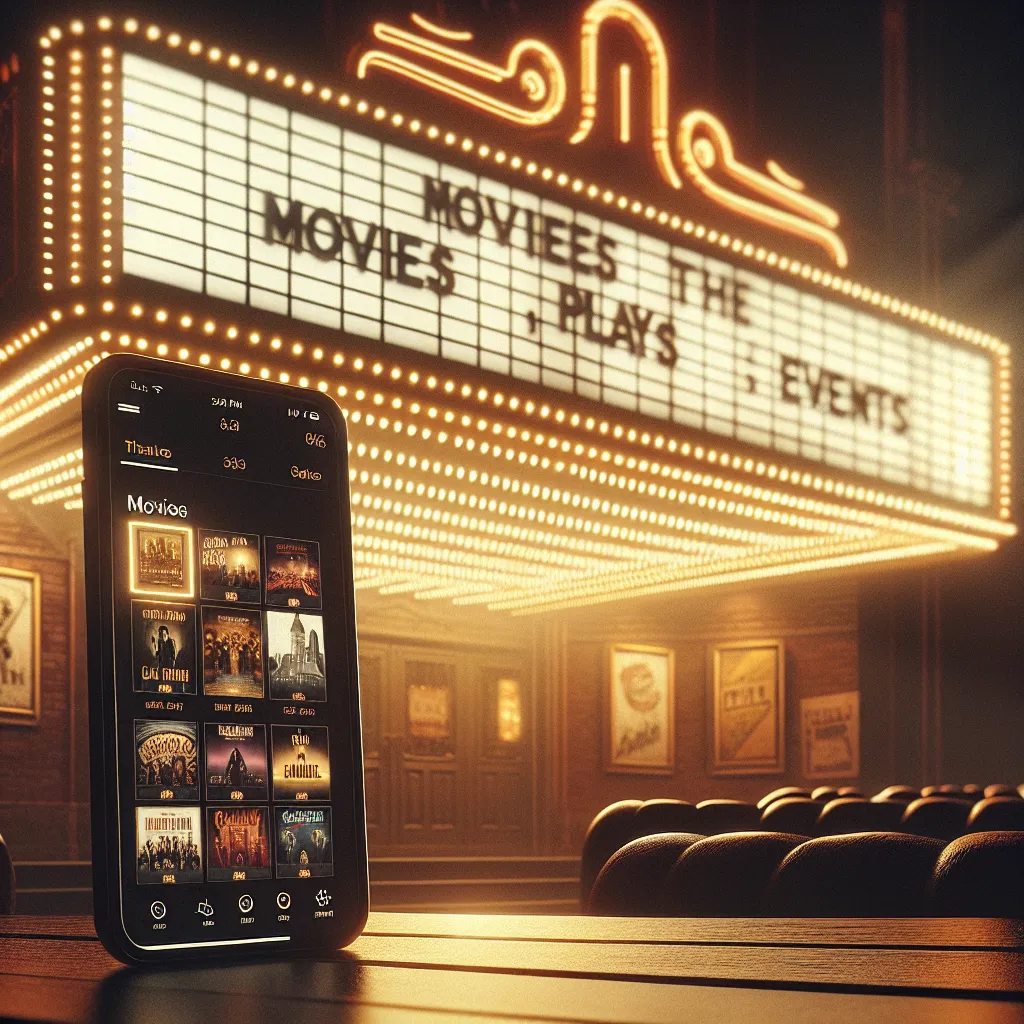The Rise of Live Performance: From Theater to Digital Streaming
The evolution of entertainment from stage to screen has been a fascinating journey that has revolutionized the way we experience live performances. From traditional theater to digital streaming, the rise of live performance has undergone a significant transformation.
In the past, theater was the primary medium for live performances. Audiences would gather in theaters to witness actors, singers, and dancers perform live on stage. The thrill of watching a story unfold in real-time, coupled with the palpable energy of the performers, created a unique and immersive experience.
However, with the advancement of technology, the entertainment industry has witnessed a paradigm shift. Digital streaming platforms have opened up new avenues for live performance, allowing audiences to access theatrical productions, concerts, and other live events from the comfort of their homes. This has democratized access to live performances, making them more accessible to a global audience.
Moreover, live streaming has enabled performers to reach a wider fan base and connect with audiences beyond geographical boundaries. It has also provided new opportunities for creative innovation, allowing artists to experiment with interactive elements and immersive storytelling techniques.
The rise of digital streaming has not replaced traditional live performances; rather, it has complemented them, offering a new way for audiences to engage with live entertainment. As technology continues to evolve, the line between on-stage and on-screen performances is becoming increasingly blurred, promising an exciting future for the world of live entertainment.
The Impact of Radio and Television on Entertainment Culture
Radio and television have had a profound impact on entertainment culture, revolutionizing the way we consume and engage with content. The invention of the radio, with its ability to broadcast music, news, and storytelling, brought entertainment directly into people’s homes for the first time. This led to a significant shift in cultural dynamics, as families and individuals could now gather around a radio to listen to the latest music or catch up on world events.
Television further transformed entertainment culture by introducing visual storytelling and bringing iconic figures and events directly into living rooms. The ability to see live performances, news broadcasts, and fictional stories played a pivotal role in shaping popular culture. Television also created new opportunities for artists and performers to showcase their talents to a wide audience, influencing trends and shaping societal norms.
Both radio and television significantly influenced the way entertainment was consumed, blurring the lines between reality and fiction and providing a platform for cultural exchange. As a result, these mediums have become integral parts of entertainment culture, paving the way for the digital revolution that continues to shape the industry today.
Exploring the Birth of Cinema and Its Impact on Society
One of the most significant developments in the evolution of entertainment was the birth of cinema, which had a profound impact on society. The transition from stage to screen marked a revolutionary shift in how stories were told and experienced. In the late 19th century, pioneers such as the Lumière brothers and George Méliès pioneered the art of filmmaking, introducing audiences to the magic of moving images. The Lumière brothers’ first public screening of films in 1895 amazed and captivated viewers, sparking a new form of entertainment that would soon captivate the world.
The birth of cinema had a transformative effect on society, influencing not only how people spent their leisure time but also shaping cultural norms and values. Films became a powerful medium for storytelling, providing a new way for people to connect with narratives and characters. The ability to capture and project life onto a screen created a shared experience for audiences, transcending language and cultural barriers.
Moreover, the influence of cinema extended beyond entertainment, impacting societal perspectives on various issues. From addressing social injustices to fostering a sense of unity during times of turmoil, films became a reflection of the collective consciousness, shaping public discourse and influencing attitudes.
As cinema continued to evolve, technological advancements and artistic innovations further expanded its reach and impact on society, solidifying its place as a dominant form of entertainment. The transition from stage to screen marked a pivotal moment in the history of entertainment, forever changing the way we experience stories and the world around us.
Evolution of Entertainment Technology: From VHS to Virtual Reality
Sure, here’s a fragment on “The Evolution of Entertainment: From Stage to Screen” focusing on “Evolution of Entertainment Technology: From VHS to Virtual Reality”.
Entertainment technology has evolved significantly over the years, shaping the way we consume and interact with media. The transition from VHS to virtual reality represents a dramatic shift in the entertainment landscape. VHS revolutionized home entertainment, allowing people to watch their favorite movies in the comfort of their homes. This technology paved the way for the widespread adoption of home video and laid the foundation for the modern streaming services we use today.
On the other hand, virtual reality (VR) has taken the concept of immersive entertainment to a whole new level. With VR headsets, users can now step inside their favorite movies, games, and experiences, blurring the lines between the virtual and physical worlds. This advancement in entertainment technology has opened up new possibilities for interactive storytelling and gaming, offering a more immersive and engaging experience for audiences.
As technology continues to advance, we can expect further innovations that will continue to shape the future of entertainment, creating new and exciting ways for audiences to engage with their favorite content.
The Future of Entertainment: Navigating the Shift to Digital Platforms
As we look back on the evolution of entertainment from the traditional stage performances to the modern screen-based experiences, it’s evident that the landscape of entertainment has undergone drastic transformations. However, the future of entertainment is poised to navigate a significant shift towards digital platforms, revolutionizing the way we consume media and interact with content. With the advent of streaming services, on-demand content, and interactive digital experiences, the entertainment industry is undergoing a rapid and dynamic evolution.
Digital platforms have opened up new avenues for content creators to reach wider audiences and engage with consumers in innovative ways. The rise of subscription-based services and user-generated content has democratized entertainment, allowing individuals from diverse backgrounds to participate in the creation and consumption of media. This shift towards digital platforms has also led to the convergence of various forms of entertainment, blurring the lines between traditional mediums and creating new opportunities for immersive storytelling and interactive experiences.
Furthermore, the future of entertainment is characterized by the integration of cutting-edge technologies such as virtual reality (VR) and augmented reality (AR), which are redefining the way audiences experience content. These emerging technologies offer unprecedented levels of immersion and interactivity, paving the way for entirely new forms of entertainment that transcend the boundaries of conventional media. From interactive VR games to immersive AR experiences, the digital future of entertainment promises to captivate audiences in ways never before imagined.
In conclusion, the future of entertainment is intricately linked to the ever-expanding realm of digital platforms, offering limitless possibilities for creators and consumers alike. As we navigate this shift, it is essential for industry stakeholders to embrace emerging technologies, adapt to evolving consumer preferences, and explore innovative ways to deliver compelling content in the digital age.



